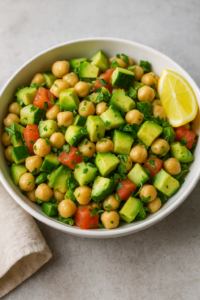
The glycemic index helps us to understand which foods are best and worst for controlling our blood glucose levels.
As we have seen, when blood glucose levels get too high, insulin is released into the bloodstream by the pancreas to help disperse the glucose. The insulin transports the glucose to cells needing extra energy. The cells have "insulin receptors" positioned so that insulin can bind to them, facilitating glucose entry and utilization in the cells. Once inside the cells, the glucose is burned to produce heat and adenosine triphosyphate, (ATP) a molecule that stores and releases energy as required by the cell.
When cells become less sensitive to the effects of insulin, they accept less glucose, so more glucose than usual remains in the bloodstream. Result? The pancreas over-compensates by working harder and releasing even more insulin.
Check out these related articles, too:
What You Should Look Out For For Kidney Failure Symptoms?
Kidney Failure Treatment Without Dialysis
Kidney Diet Secrets That Can Reverse Chronic Kidney Failure
The Effects of High Potassium For Kidney
What Is A Healthy Kidney Diet Plan
Diet Tips For People With Diabetes and Kidney Disease
Are Renal Insufficiency And Kidney Failure The Same Thing
5 Natural Supplements For Chronic Kidney Disease
Bitter Melon Recipe For Diabetes
The combination of insulin-insensitivity and insulin over-production typically leads to one of two results:
Either, the pancreas gets worn out and insulin production slows down to abnormally low levels. Result? We develop type 2 diabetes. (About 30 percent of cases)
Or, the insulin-resistant patient doesn't develop diabetes (because the pancreas continues to produce sufficient insulin) but, instead, contracts hyperinsulinism (abnormally high levels of insulin in the blood), which can cause chronic obesity as well as high blood pressure, high levels of triglycerides, low HDL (good) cholesterol, heart disease, and possibly some cancers.
Good Energy Food for Diabetics
10 Simple Food Concepts Every Person Living With Diabetes Should Know
Making Cheesecake For Diabetics
Enjoy the Taste and Benefits of Diabetic Foods
Will The Mulberry Leaf Help Your Diabetes?
5 DIABETIC FRIENDLY SALADS Some Tasty
DIABETIC LEMON COCONUT COOKIES Some Tasty
50 Healthy Diabetic Recipes That Are The Best
Low GI Foods Cause Lower Insulin Levels
This is why experts are beginning to recognize the health advantages of following a low GI diet. Because lower GI foods are converted into glucose much more slowly, causing less insulin to be produced.
This is not the last word on this subject, by any means. Research into insulin insensitivity and the relationship between insulin levels and obesity is ongoing. However, the overconsumption of high-GI foods (and high-fat fast-food) is a major cause of concern.
The new carbohydrate-classification system known as the Glycemic Index rates the carbohydrate quality in foods according to its immediate effect on blood glucose level. Thus carbs that break down quickly into glucose during digestion, causing a rapid rise in glucose levels, have a High GI value. Those carbs that break down more slowly, are given an Intermediate or Low GI value.



 Protected by Patchstack
Protected by Patchstack